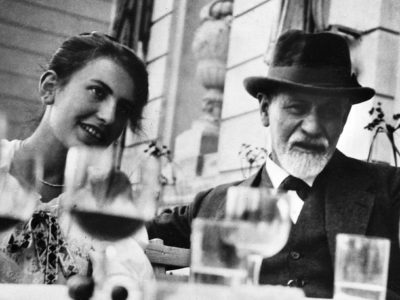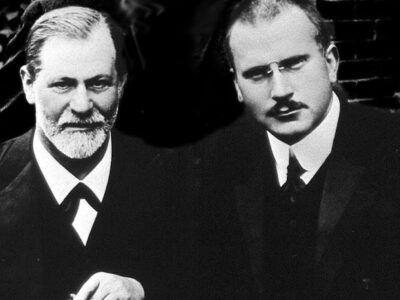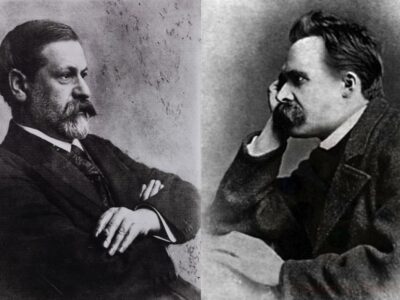
- This event has passed.

The latest string of sexual assault and harassment scandals invites critical reflection into the structure of masculinity.
While much of the media focus has been on abuses of power, popular responses such as the #MeToo movement have emphasised the everydayness of sexual harassment, shifting the focus to masculinity as such.
Psychoanalysis has long held that masculinity is not a biological given, nor is it simply the sum total of patriarchal values operating on an individual. Rather, it is characterised by a peculiar, fraught and anxious relation to the psychical emblem of the ‘phallus’.
How might psychoanalysis enrich popular notions of ‘fragile’ and ‘toxic’ masculinity?
This conference brings together perspectives from psychoanalysis and beyond to bring out some of these troubling (and troubled) dimensions of the subjective structure popularly known as ‘masculinity’.
Programme
9:15 – 9:40:
Registration and Coffee
9:40 – 10:00:
Introduction
Stefan Marianski
10:00 – 10:50:
The Only Good Father
Calum Neill
10:50 – 11:20:
Coffee break
11:20 – 12:00:
From Machismo to Medusa: The Question of Masculinity and Maternal Omnipotence
Dorothée Bonnigal-Katz
12:00 – 12:30:
The Tory Power Stance: A Developmental Perspective
Ivan Ward
12:30 – 12:50:
Morning plenary
12:50 – 14:00:
Lunch break
14:00 – 14:45:
Is the Phallus Uncut? On Male Circumcision and ‘Intactivism’
Jordan Osserman
14:45 – 15:00
General discussion
15:00 – 15:30
Afternoon break
15:30 – 16:30
The Fear of Being Ignored: From Incel to Imposters
Renata Salecl
16:30 – 17:00
Afternoon plenary
Abstracts
Dorothée Bonnigal-Katz
From Machismo to Medusa: The Question of Masculinity and Maternal Omnipotence
This paper looks for the roots of masculinity in maternal omnipotence and in the mirage of wholeness and plenitude of primary narcissism. A bit of a reaction formation, masculinity could be read as the construct erected against the tyranny of the phallic mother, an attempt to appropriate her murderous power. But the horror of castration persists all the same and the hollow phallus of masculinity ultimately is its best poster boy. Masculinity and maternal omnipotence will be examined across a variety of cultural and mythological references and an array of clinical situations including fetishism, hysteria and psychosis.
Calum Neill
The Only Good Father
In unravelling the question of sexual difference and the (non-)relation between the sexes, Jacques Lacan alludes to, draws on and restages Freud’s infamous myth of the primal horde. Core to this myth is, of course, the figure of the father. The contemporary suspicion of a crisis in masculinity – variously linked to a toxic (sexual) aggression, a de-masculisation, dislocation and failure of identity – would suggest that the myth has lost its relevance and its explanatory value. This paper will revisit Lacan’s reading of the myth, drawing on two contemporary cinematic examples; Xavier Legrand’s Custody and Antony and Joe Russo’s Avengers: Infinity War. The films might be understood to each present something of the fantasy of masculinity, its crisis and the concerns these might raise.
Jordan Osserman
Is the Phallus Uncut? On Male Circumcision and ‘Intactivism’
Female circumcision (also known as ‘FGM’) has been debated and opposed by feminists, policymakers, and the public at large for a long time. More recently, a movement opposed to male circumcision, which goes under the banner of ‘intactivism’, has been gathering steam. Based initially in the United States, many intactivists are men who were circumcised at birth and now attribute a range of psychological and sexual ailments to the procedure. They often portray themselves as victims of feminist ideology, aligning themselves with the ‘men’s rights movement’. Some attempt ‘foreskin restoration’ to retrieve, or regrow, the part of their penis they feel to have traumatically lost.
The term ‘intactivist’ invites psychoanalytic criticism, as it references that wish for ‘intactness’ that psychoanalysis alleges to be a defensive fantasy against the subject’s foundational fracture — the wish to ‘restore’ a prelapsarian wholeness that never actually existed. How can psychoanalysis help us understand the psychical dimensions of such stances on male circumcision? And what might the seemingly fringe concerns of intactivists reveal about the nature of masculinity as such?
Renata Salecl
The Fear of Being Ignored: From Incel to Imposters
This lecture will address the question of masculinity in light of neoliberal ideology of success and failure. First, it will question why it seems to be harder for men to deal with sexual rejection and lack of social recognition. And second, it will look at violence against women in the context of the neoliberal ideals of masculinity.
Ivan Ward
The Tory Power Stance: A Developmental Perspective
Whether adopted by a man or woman, the ‘Tory Power Stance’, as it has been dubbed, is a pose designed to project masculine power and authority. Various hypotheses have been offered as to the origin of the pose and what it might signify. In this paper I will offer an alternative view.
Speakers’ biographies
Dorothée Bonnigal-Katz is a psychoanalyst and a translator. She is a member of the SITE for Contemporary Psychoanalysis and one of the editors of Sitegeist: A Journal of Psychoanalysis and Philosophy. She is the founder of the Psychosis Therapy Project. She has translated a number of psychoanalytic works including Dominique Scarfone’s Laplanche: An Introduction (2015) and she translates for the International Journal of Psychoanalysis on a regular basis.
Calum Neill is Associate Professor of Psychoanalysis and Cultural Theory at Edinburgh Napier University. He is the editor of The Palgrave Lacan Series and co-editor of the forthcoming three volume set, Reading Lacan’s Ecrits. He is the author of Without Ground: Lacanian Ethics and the Assumption of Subjectivity (Palgrave, 2014), Ethics and Psychology: Beyond Codes of Practice (Routledge, 2016) and Jacques Lacan: The Basics (Routledge, 2019).
Jordan Osserman completed his PhD in Gender Studies and Psychoanalysis at University College in London in 2017. His dissertation, entitled ‘On the Foreskin Question’, drew on psychoanalysis and philosophy to examine the surprisingly pivotal role of stances towards male circumcision in Christianity, medicine, and politics. His work has been published in Transgender Studies Quarterly and Blunderbuss Magazine, and he is a host on the podcast New Books in Psychoanalysis.
Renata Salecl is philosopher and sociologist. She is Professor at the School of Law, Birkbeck College, London and Senior Researcher at the Institute of Criminology at the Faculty of Law, Ljubljana, Slovenia. Her last book Tyranny of Choice has been translated into 15 languages.
Ivan Ward is Deputy Director and Head of Learning at the Freud Museum London and manager of the museum’s conference programme. He is the author of a number of books and papers on psychoanalytic theory and on the applications of psychoanalysis to social and cultural issues. His latest publication is ‘Parsifal as Castration Drama’ (2017) in a special issue of The Wagner Journal based on a conference organised by the Freud Museum in 2016.
Image: ‘Banana Split’ by Kristen Meyer






